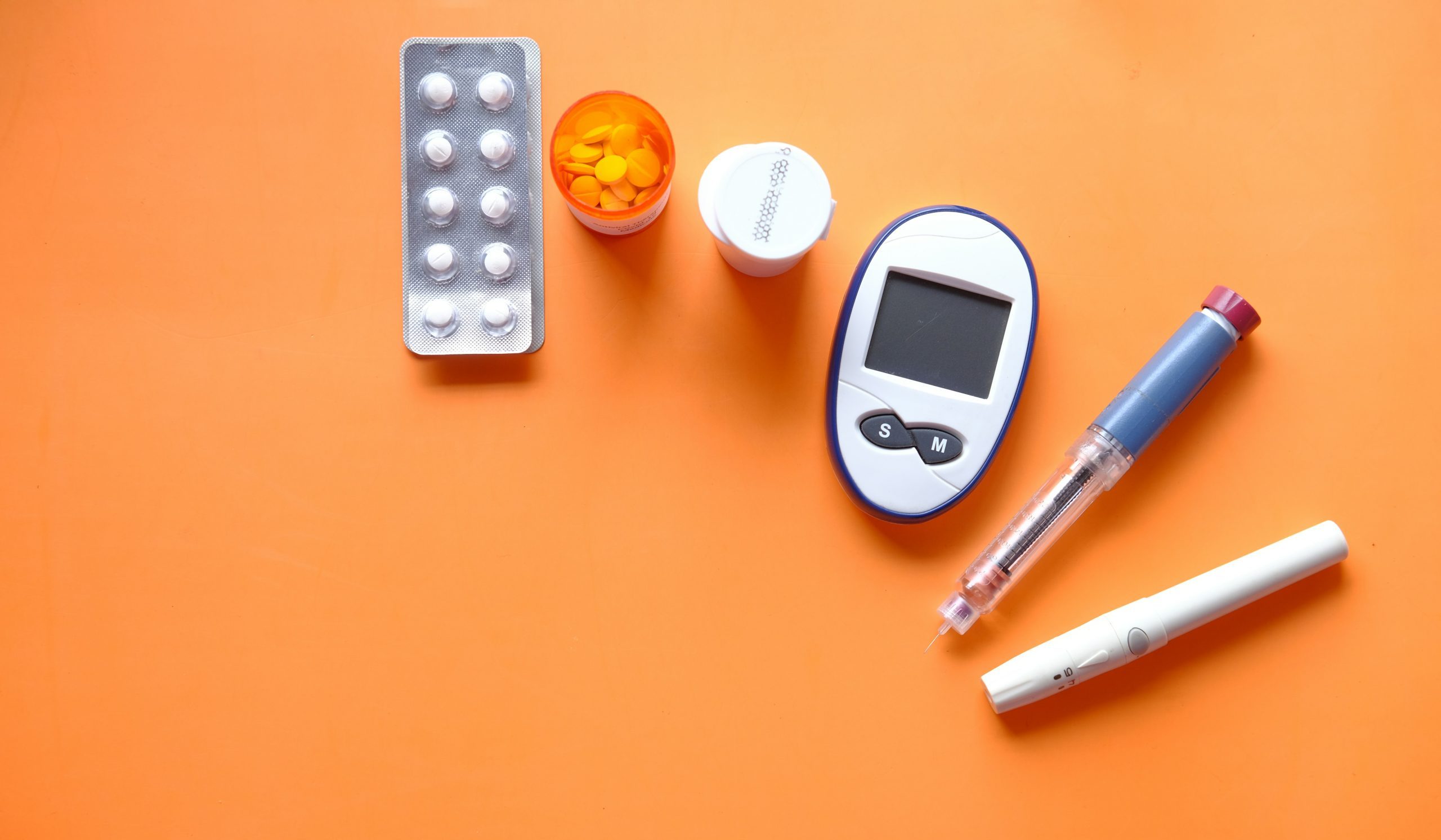
Denver Endocrinology Diabetes and Thyroid Center is a state of the art facility in diabetes management. Our expertise includes Type 1, Type 2, Latent Auto-immune diabetes of adulthood (LADA), Maturity Onset Diabetes in the Young (MODY), steroid induced diabetes and Gestational Diabetes. We pride ourselves in maintaining the most recent advances in diabetes care and providing our patients with pertinent new technologies. We deal with all aspects of diabetes including:
Intensive Insulin Therapy
Our staff of physicians, nurse practitioners and diabetes educator offer a team approach for initiation of intensive insulin therapy. Intensive insulin therapy has the primary goal of keeping blood sugars as near normal as possible. The Diabetes Control and Complications Trial showed that the closer blood sugar levels were to normal the slower the progression of complications associated with diabetes such as eye, kidney, and nerve disease.
Intensive insulin therapy aims to mimic the normal pancreas by using two types of insulin: long acting (basal) insulin and rapid-acting (bolus) insulin. Rapid acting insulin is taken prior to meals to cover food that will be eaten and long-acting insulin is given 1-2 times daily to achieve overall lowering of blood sugars.
Insulin Pumps
We provide intensive education to our patients regarding insulin pump therapy. We will work with you and your primary care providers to customize your pump to best meet your insulin needs, dietary habits, and exercise regimen. We provide individual pump training as well as group classes to learn more about general pump therapy.
An insulin pump is a device the size of a pager that contains a syringe reservoir filled with insulin. A small flexible tube connects the reservoir of insulin to a catheter inserted under the skin in the abdomen. There is also a tubing-free pump attached directly under the skin on the abdomen, back or arm. The pump releases rapid-acting insulin and delivers insulin in two ways: Continuously (basal) and in bursts (bolus) to cover food eaten. An insulin dose is manually programmed into the pump to cover food eaten.
Insulin Pumps can be customized:
• To reduce episodes of hypoglycemia
• To your personal sensitivity to insulin: how much insulin is required to lower blood glucose to a desired level. (sensitivity factor)
• To adjust basal rate and bolus insulin
• To your exercise habits
• To calculate your meal time bolus with carbohydrate counting
• To be integrated with continuous home glucose monitoring technology
Continuous Home Glucose Monitoring
Continuous glucose monitoring uses a glucose sensor (contained in a small needle) to determine the level of glucose in the interstitial fluid, found between cells under the skin. The sensor wirelessly transmits results to a small recording device (the size of a pager or cell phone), which can be worn on the clothing, carried in a purse, or placed within a short distance of the sensor (e.g.: a bedside table). The sensor records and displays the blood glucose level every few minutes, allowing the patient to observe the trend of their blood glucose levels. The receiver can also be set to alarm if the blood glucose level is above or below a pre-set level, which can be especially helpful for patients who cannot feel when they have low blood glucose (hypoglycemia).
The sensor must be removed and reinserted in a different area every 3-7 days. Patients must continue to measure blood glucose levels with a traditional monitor several times daily to ensure that the continuous monitor is correctly calibrated.
Gestational Diabetes and Diabetes in Pregnancy (T1 and T2)
Our staff of experts including the physicians, nurse practitioners and diabetes educator are well trained to manage your diabetes in pregnancy. We follow current guidelines to help you maintain normal glucose values in pregnancy and are able to provide lifestyle, dietary guidance as well as medication management. We work closely with your OB to ensure your diabetes is well managed with the ultimate goal of a healthy baby and positive birthing outcomes.
Denver Endocrinology Diabetes and Thyroid Center is also able to manage the various complications, challenges and educational gaps of diabetes including:
• Hypoglycemia
• Nutritional Management
• Exercise Education
• Complication Prevention
• Behavior Modification
• Weight Management
• Lipid Management
• Ophthalmologic Monitoring
• Neuropathy Management
• Renal (kidney) Monitoring
